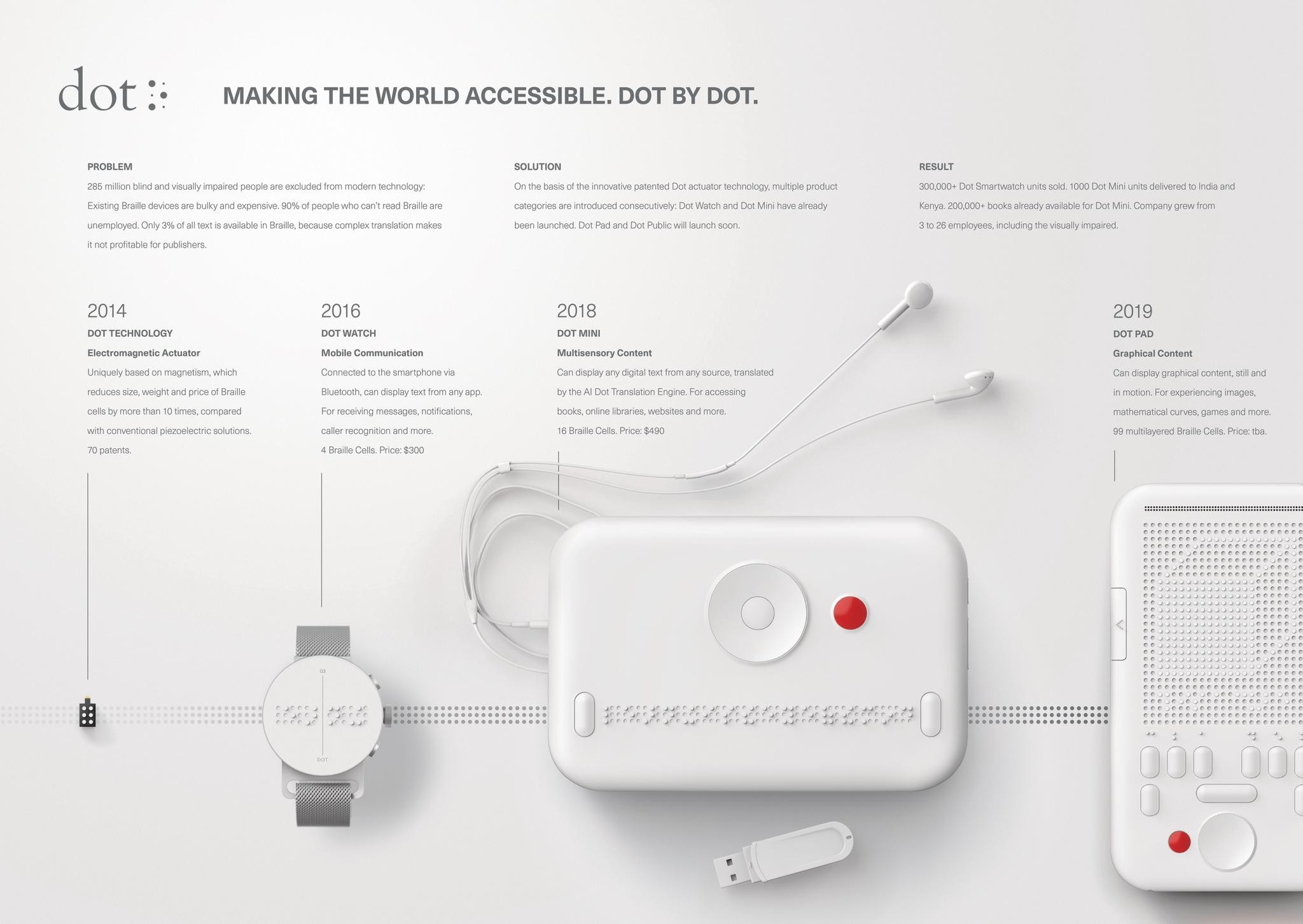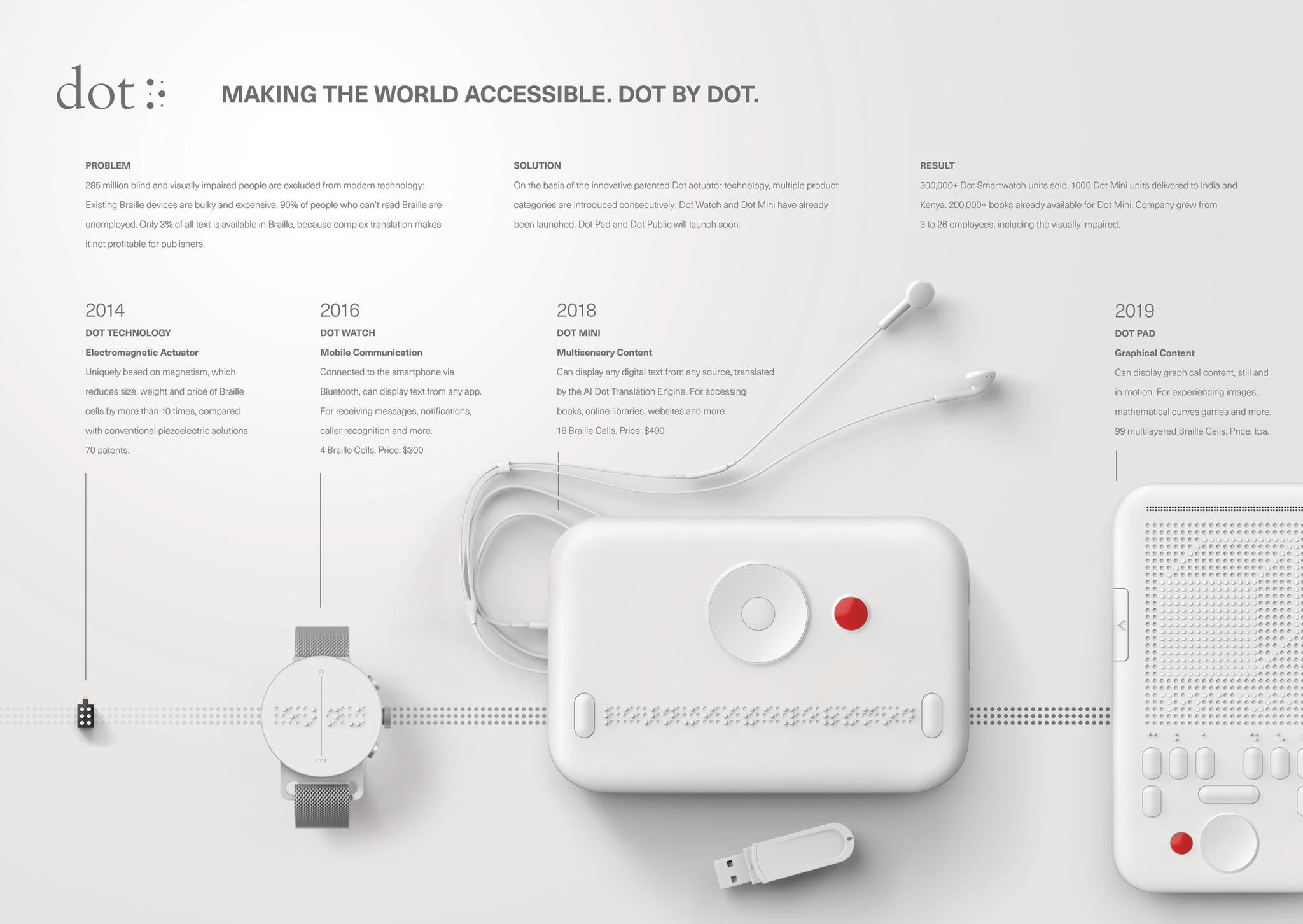Eurobest
Dot Go. The first object interaction app for the visually impaired.
SERVICEPLAN, Munchen / DOT INCORPORATION / 2022
Awards:

Overview
Entries
Credits
OVERVIEW
Background
For blind and visually impaired people, it’s challenging to enter unfamiliar environments. Camera-based assistive apps can help, however existing solutions are limiting: Objection detection apps are limited to identifying objects in the environment but they fail when it comes to interacting with these objects in a meaningful and productive way.
They all rely on proprietary data and closed systems, designed for fixed use cases rather than increasing user needs. This leads to fragmentation and makes solutions increasingly expensive, forcing users to choose between adaptability and their individual needs.
Idea
Dot Go is the first object interaction app. Which means that it not only detects objects in the environment but also connects them to actions. These actions could be internal actions like sounds and vibration; but, most importantly, external actions in other apps, websites, and even smart home devices. For example: A bus stop sign could trigger open the public transportation app to buy the right ticket. Any object can be connected with any action, opening up infinite possibilities.
By leveraging open-source computer vision models and the camera sensors to detect distance, Dot Go serves as a toolkit for accessibility. More than an app, it’s a platform, allowing everyone to customize presets for specific objects, locations, and needs, creating a growing library of use cases curated by users, institutions, and brands.
Strategy
There are 285 million visually impaired people worldwide. But there are many levels to visual impairment. This is why the existing “one-size-fits-all” approach fails to make the world accessible to each of their individual needs. Dot Go is an open platform for sharing and building diverse solutions. By leveraging technology, Dot Go provides a whole new approach to assistive living which empowers individuals.
Existing accessibility apps are one-dimensional and only focus on object detection whereas Dot Go provides a whole range of solutions be it for routine tasks, productivity, or even leisure.
Execution
Following the simple material conditional logic used in programming — “if x then y” — Dot Go allows users to create on a simple principle: Any object can connect with any action. LiDAR and camera sensors are utilized to measure distance to objects.
Unlike existing solutions that rely on proprietary databases, Dot Go leverages open-source computer vision models, including those of other solutions, making the app as accurate as all existing solutions combined, while enabling customization for specific user needs.
Anyone can download existing presets from a growing library of use cases curated by users, institutions, and brands. Dot Go empowers the visually impaired community to engage more with their environment and experience it in their own way.
To enhance usability and performance Dot Go works with, but is not limited to, accessories like lanyards and active shirts for handsfree use. Pocket Mode and back tap help conserve energy.
Outcome
After a promising launch of the first beta version of Dot in 2021, Dot Go received a funding of 140k USD from the Inter-Developmental American Bank (IDB) and Born2Global as a part of the LAC Deep Tech Exchange Program, to increase app functionality. As a result, a long-term partnership was established to make tourism in South America accessible.
After months of development and accessibility audits by visually impaired developers, the public version of Dot Go launched in early 2022. Available for free download from the App Store, Dot Go is being used daily by thousands of visually impaired users, businesses, brands, and organizations.
Similar Campaigns
6 items


